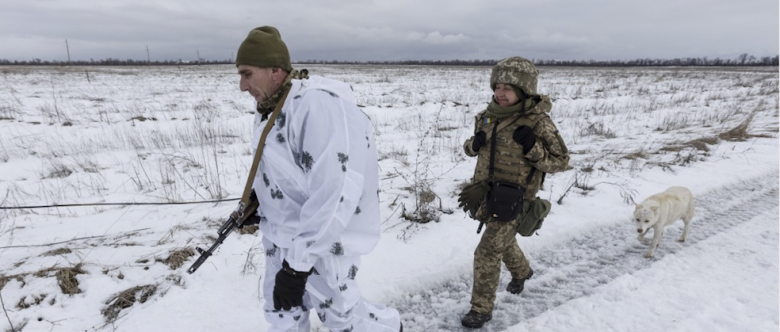Minimal response

BRUSSELS – The West has a playbook for when Vladimir Putin sends troops into Ukraine. NATO will deploy so-called very high readiness forces in Poland and Romania. That will show its commitment to the security of Eastern member states. The West will slap more economic sanctions on Russia, eventually pushing it deeper into economic distress. It might also offer some military assistance to Kiev. In other words, it will keep doing what it has been done since 2014: not that much.
One can argue that there is also not much that the West can or should do. This playbook sends a so-called “strong signal” to Moscow, while not expecting that Russia is interested in campaigning beyond Ukraine and threatening the few thousands of Nato troops that are forward deployed in Eastern Europe. It would also tacitly acknowledge Russia’s entitlement to a buffer zone and bring stability so that the US can focus on China.
There could be an additional argument for the West to remain modest in its response: the Russia-humiliation-argument. Russia’s current stance is supposed to be understandable. The West ignored if not humiliated Russia too long. Personalities like Guy Verhofstadt and Victoria Nuland needlessly stoked up Moscow’s ire by making bold statements. After decades of the West trampling the sovereignty of countries, the assertiveness of others is not surprising now that the balance of power shifts.
All arguments are but rationalisations of Western decline. The West is indeed declining and it is declining fast. The best evidence is that it cannot even check an economically stagnant, geriatric country like Russia. Russia’s intimidation towards Ukraine and in different other places around Europe is only the harbinger of more such assertiveness by more powers. The recklessness that the West showcased in the last decades will be slowly replaced by the recklessness of others.
And that recklessness will come at the detriment of the West. While Eastern European countries might have not much options but to accept a moderate stance on Russia, this reticence will undermine trust in the geopolitical solidarity that the EU and NATO are supposed to come with. With the Germans and others already seeking to limit non-military responses, many Eastern European countries will feel on their own. They will seek for more internal coordination and autonomously develop alternative partnerships.
It will send a very strong signal into the wider neighbourhood that Europe is only a shadow of its security ambitions on paper. Nobody will take Europe’s military pretences seriously anymore and even Nato’s initial standing as a military alliance will be dealt a blow. Imagine what that could mean for the many countries around Europe that are already sceptical of their relations with the West, but were still just a little too cautious to clench a fist: Serbia, pro-Russian folks in the Republika Srpska; for example, Egypt, and virtually all authoritarian countries in the Middle East. This is the sign for even harder hedging in which such countries will try to maximize their freedom of action by playing the West of against Russia, China, and others.
Most of all, it will lead others to conclude that military might is rewarding. Virtual and normative power, exalted in the golden age of globalization, that’s all nice, but hard power and military intimidation, the threat of massive force carry the day. Speak quiet but carry a big stick. What is the West going to do if, say, Turkey uses more military power towards Greece? What will happen of China becomes a security challenge to a Western country, through cyber, or through its growing presence in the Arctic?
The current drama around Ukraine accelerates the power shift in Eurasia, where the scales are decisively swinging from the Atlantic end to the Asian end. Adversaries will feel emboldened to push harder to evict the United States from the maritime fringes, to gain dominance in Eurasia, in terms of their power and the authoritarian model. American influence might not be enjoyed in Europe, but the authoritarian tide will be even less enjoyable.
Let there be no mistake: there is indeed little the West can do more about Ukraine than its current planned minimal response. In the short term, the West, the EU particularly, will be on the defensive. The worst it can do is to continue to try to cover this reality up with slogans and its trademark empty promises. The best it can do, is to lick its wounds, to recognize its vulnerability, to reorganize, and to slowly try to rebuild its power. If not, Russia’s current power plays will just be the prelude of a never-ending sequence of humiliating setbacks.
Photo credit: Andrey Dubchak
